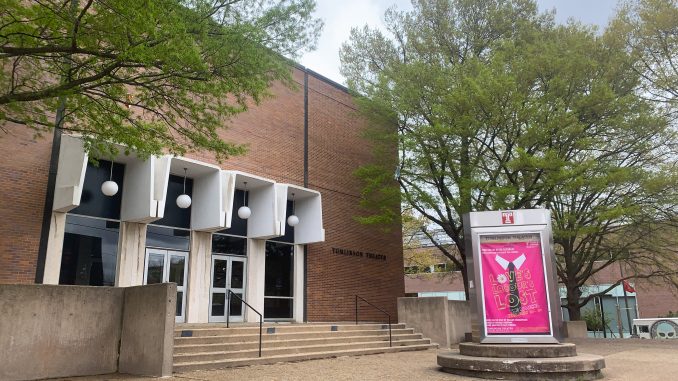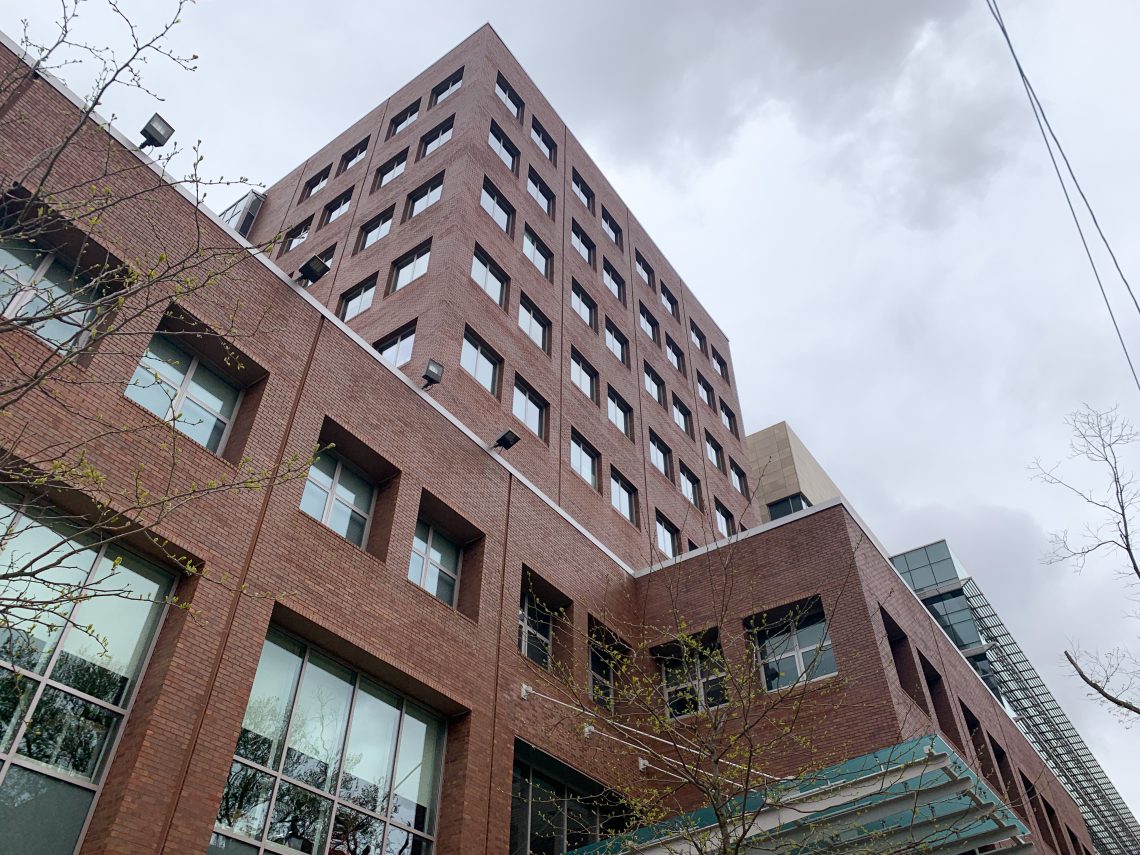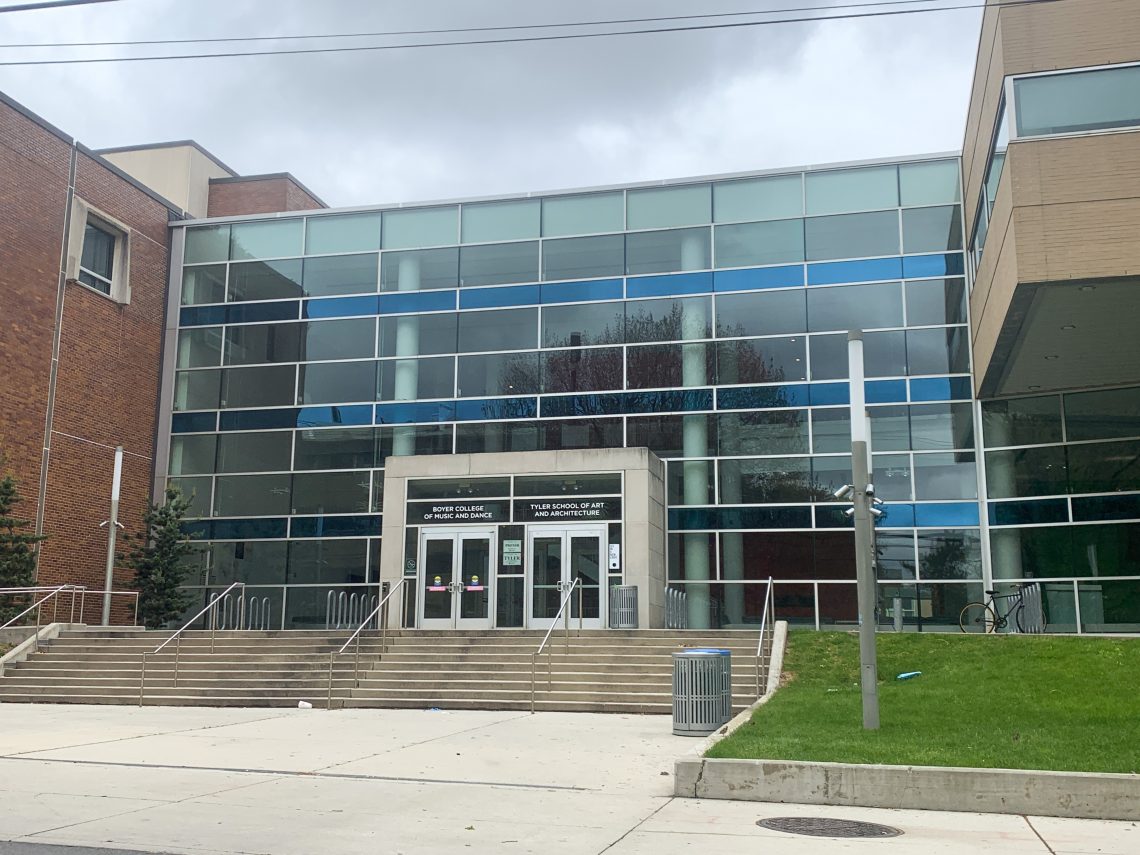
Conducting a chemical experiment, learning Broadway choreography or designing a glass vase are not typically online activities.
Yet, after Temple University transitioned to online classes due to the COVID-19 outbreak on March 16, students and professors in the College of Science and Technology, School of Theater, Film and Media Arts and Tyler School of Art and Architecture, whose coursework heavily relies on in-person activity, have adapted to the change.
Maggie Anderson, a musical theater professor, said the transition to online courses is a challenge. She teaches courses like Jazz Dance II and Advanced Jazz for Musical Theater, which usually involve the use of a studio with plenty of space for students to be active, she said.
“Particularly with dance, the students at first were like, ‘How on earth is this going to happen?’” Anderson added.
Anderson transitioned her courses to be accommodating for students’ spatial restrictions in their homes. While students are still expected to perform various routines according to the original syllabus, Anderson allows modifications due to space or noise constraints on a case-by-case basis.
“I give my students the most optimal experience I can, under a totally different lens,” Anderson added. “That mindset has helped enhance my creativity.”
The School of Theater, Film and Media Arts was not immediately available for comment.
CST students also wondered how their classes would transition online.
Maya Rahman, a junior biology major, is enrolled in both General Physics II and Genetics this semester, which has a lab component. The classes are now often shortened and held online via Zoom.
But the current Physics II unit on electricity and magnetism is difficult to administer online. Students cannot conduct their lab experiment in person, so the class is instead given content questions and video of what it would be like.
“We got a problem and we did it for 30 minutes, and then they let us go,” Rahman said.

“Professors have definitely been pretty fair about it,” Rahman said. “Everyone is just trying to work together I think. Lab is weird being online, but people are trying their best.”
Gabe Gregoire, a sophomore health professions major, was enrolled in two lab classes this semester, but his General Biology II class discontinued and replaced lab coursework when classes moved online, while his General Chemistry II class still meets weekly and assigns lab reports.
His instructor, biology professor Sheryl Love sent out an announcement on Canvas that one lab section would be replaced with a worksheet, and five other sections would be discontinued and graded on the work they completed up until the transition.
“Unfortunately, due to the hands-on nature of the laboratory, we will be unable to provide online instruction for the remainder of the labs this semester,” the announcement read.
“They said bio was too hard to do online because it relies so heavily on in-person,” Gregoire said. “They’re doing everything they can, but for a lot of students to retain the information that’s being presented to them online is harder than what they’re doing in person.”
The course grade for his General Biology II class will be based on the completed assignments from the first half of the semester. Gregoire has felt stress because he is not able to interact with the professors in person, he said.
“I have to rely more on myself,” he added.
The College of Science and Technology denied request for comment.
Many other students have been relying on their own knowledge to do most of their coursework.
Mijah Greenidge, a senior psychology major, decided to take a glass blowing for a non-majors course during her last semester. They were only able to learn one of the two techniques in the course before it moved online, she said.

Her class assignments are now to research and write about famous glass artists as well as take pictures of glass items around the house, instead of actually making it, Greenidge added.
“We have an artist presentation coming up, it’s a lot more about researching artists who are active in glassblowing, researching the properties of glass,” she said. “It’s work you get in a lecture class and not in a hands-on class.”
For the first half of the semester, the course was focused on the glass blowing hot shop, where the students created their own glass pieces by hand. The second semester was supposed to include cold shop work, like designing layered images or playing with glass that is already made by putting images into or between the glass.
“It felt like, very creative,” Greenidge added. “It was painting and sketching and working with big machines and it felt exciting. I was working with things I wouldn’t have gotten a chance to work with otherwise.”
Tyler School of Art and Architecture was not immediately available for comment.
Gemma Hollister, a junior glass major, was the teaching assistant for Greenidge’s glass blowing course but her position was eliminated when classes moved online.
She originally assisted in the class to gain professional experience and share her passion for glass with students, she added. The absence of the collaborative environment for Tyler students is difficult during online classes, she said.
“I was really excited to do glass and hang out with these people but that’s gone now and that kind of sucks,” Hollister added. “It feels a little more remote. It feels less personal.”



Be the first to comment